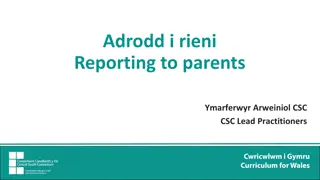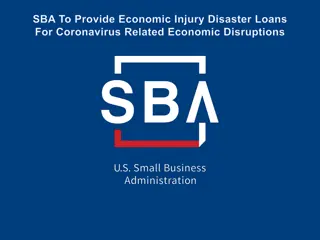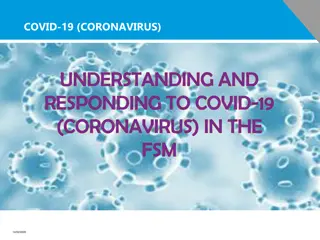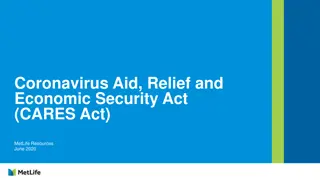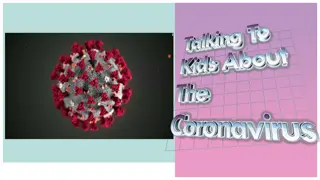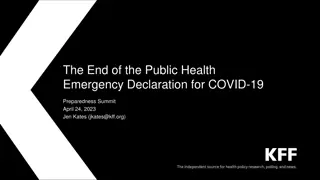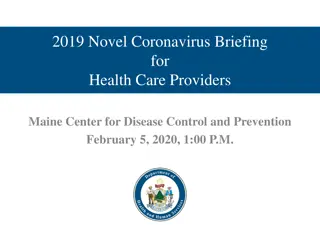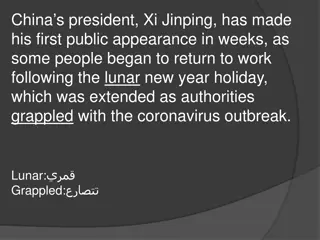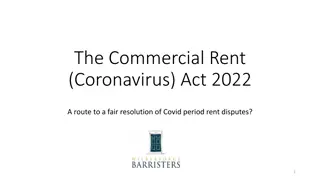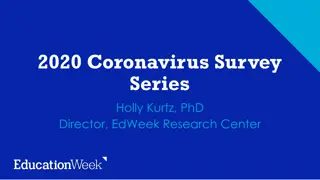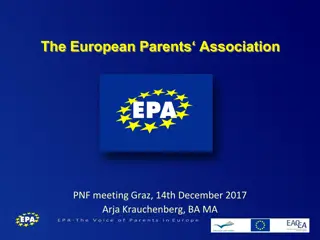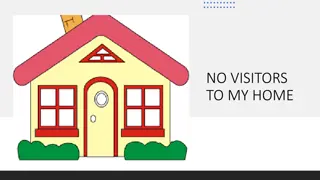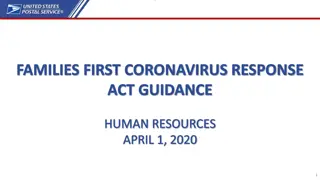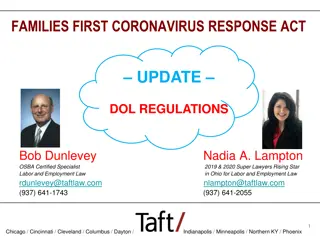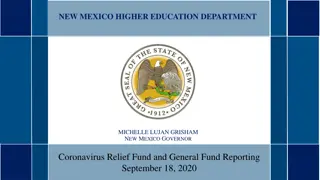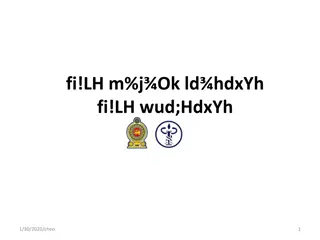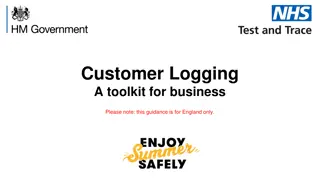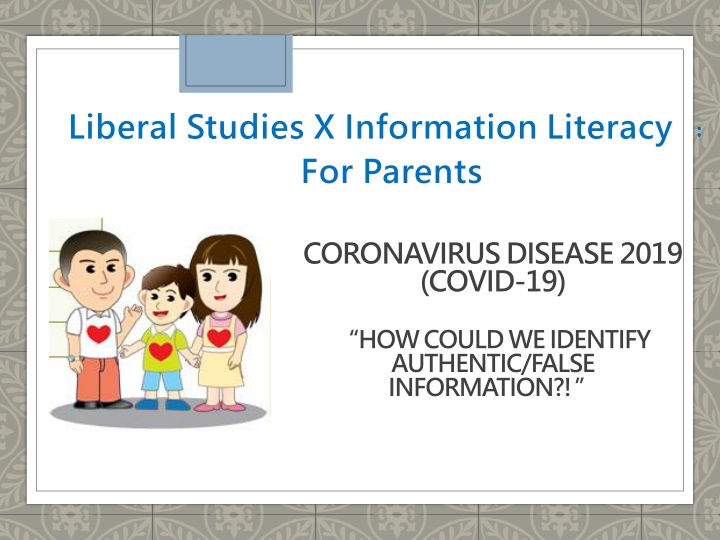
COVID-19 and Identifying Authentic Information
Learn how to discern between authentic and false information about COVID-19 to help children navigate the pandemic effectively. Explore insights on disease prevention, treatment, and more from reliable sources.
Download Presentation

Please find below an Image/Link to download the presentation.
The content on the website is provided AS IS for your information and personal use only. It may not be sold, licensed, or shared on other websites without obtaining consent from the author. If you encounter any issues during the download, it is possible that the publisher has removed the file from their server.
You are allowed to download the files provided on this website for personal or commercial use, subject to the condition that they are used lawfully. All files are the property of their respective owners.
The content on the website is provided AS IS for your information and personal use only. It may not be sold, licensed, or shared on other websites without obtaining consent from the author.
E N D
Presentation Transcript
Liberal Studies X Information Literacy For Parents CORONAVIRUS DISEASE 2019 (COVID-19) HOW COULD WE IDENTIFY AUTHENTIC/FALSE INFORMATION?!
Preamble All parents hope that their children can grow up healthily and happily. Most of us have experienced the outbreak of SARS in 2003 and deeply understand the helpless feeling during the period. In an information-rich society today, children can gain access to huge amount of information via different channels. The information could be true, false or outdated. As parents, we should make an effort to help our children explore the authenticity of information and teach them the accurate knowledge about epidemic prevention in order to fight the virus together. The purpose of this package is to introduce information about coronavirus disease (COVID-19) and provide useful tips to help children analyse the related information.
Contents Chapter 1 Understand COVID-19 Chapter 2 Knowledge about prevention and control of epidemic Chapter 3 How could parents help children obtain accurate information
Chapter 1 Understand COVID-19 "Coronavirus Disease 2019 (COVID-19)" refers to the cluster of viral pneumonia cases occurring in Wuhan, Hubei Province, since December 2019. According to investigation by the Mainland health authorities, a novel coronavirus is found to be the causative agent. Source: Centre for Health Protection, Department of Health https://www.chp.gov.hk/en/healthtopics/content/24/102466.html
Question 1Is COVID-19 an incurable disease? The main treatment is supportive. According to information provided by the Mainland health authorities, symptoms of the cases include fever, malaise, dry cough and shortness of breath. Some cases were in serious condition. People of older age or having underlying disease are at a higher risk of deterioration into serious condition. Facts and knowledge available when the novel infection is first detected are often limited. As the situation evolves, relevant information will gradually come to light such as the distribution of vector or animal reservoir, population with increased risk, case fatality ratio, complication rate, reproductive number and other transmission characteristics. Sources Centre for Health Protection, Department of Health https://www.chp.gov.hk/en/healthtopics/content/24/102466.html Preparedness and Response Plan for Novel Infectious Disease of Public Health Significance (2020) https://www.chp.gov.hk/files/pdf/govt_preparedness_and_response_plan_for_novel_i nfectious_disease_of_public_health_significance_eng.pdf
Question 2Is COVID-19 unavoidable? Current information suggests that the incubation period ranges from 1 to 12.5 days (with median estimates of 5 to 6 days), but can be as long as 14 days. There is no vaccine for this infectious disease at the moment. The main mode of transmission is through respiratory droplets, the virus can also be transmitted through contact, so members of the public should always maintain strict personal and environmental hygiene. When having respiratory symptoms, wear a surgical mask, refrain from work or attending class at school, avoid going to crowded places and seek medical advice promptly. Source: Centre for Health Protection, Department of Health https://www.chp.gov.hk/en/healthtopics/content/24/102466.html
Chapter 2: Knowledge about prevention and control of epidemic Wear a surgical mask properly when taking public transport or staying in crowded places Perform hand hygiene frequently, wash hands with liquid soap and water, and rub for at least 20 seconds. Then rinse with water and dry with a disposable paper towel. After using the toilet, put the toilet lid down before flushing to avoid spreading germs. Cover your mouth and nose with tissue paper when sneezing or coughing. Dispose of soiled tissues into a lidded rubbish bin, then wash hands thoroughly. When having respiratory symptoms, wear a surgical mask, refrain from work or attending class at school, avoid going to crowded places and seek medical advice promptly. Source Centre for Health Protection, Department of Health https://www.chp.gov.hk/en/healthtopics/content/24/102466.html
Chapter 3: How could parents help children obtain accurate information Source of picture Webpage of Education Bureau https://www.edb.gov.hk/tc/edu-system/primary- secondary/applicable-to-primary-secondary/it-in-edu/information-literacy/il-index.html
3.1. Listen before you speak Show care and concern, be an active listener of your children Have you received any new information today? Could you share it with me In face of the severe epidemic, some parents still have to go out for work. On the contrary, children stay home for online learning, which means they will have more time to receive information from the Internet and various types of communication tools. Parents should spend time with children every day and focus on sharing the latest development of the epidemic, listening to the information their children receive from the Internet, friends and teachers Parents should always analyse and reflect upon the information together with their children in order to impart proper values to them as well as to avoid the spread of false information which may affect children's emotional and mental development.
3.2. Ask to verify develop children s critical thinking skills to pursue truth Students 'critical thinking skills cannot be developed immediately. They are to be developed persistently. Parents should teach their children to reflect and take the initiative to find out the truth. Children s quest for knowledge could be enhanced through different questioning techniques. The following questions are suggested: Thanks for sending me a meaningful message today !Who sent this to you (Note Try to understand the information and background of the sender) The content involves some medical knowledge. Is the argument supported by any source, relevant report or literature? (Note: Encourage them to find out the source of information) I just browse the Government website. It was clarified that there is no shortage of goods. Would you like to have a look at the website? (Note: Encourage children to cite relevant information from reliable websites)
3.3. Love well, whip well. let children understand the consequence of sending false information Except the recipients of information from the Internet, children can also be the creators and transmitters of information. Parents should teach them how to analyse information, and also help them develop proper and responsible attitudes when they handle information. If you find that your children spread false information, stop the inappropriate behaviours as early as possible. Parents should let their children know that they must be responsible for their behaviours, and avoid becoming the rumour mongers of false information and breaking the law. Relevant news/ information: 2020 2 4 https://twitter.com/hkpoliceforce/status/1224631797134188544
Relevant ordinance According to Section 20 of the Summary Offences Ordinance (Cap. 228), any person who sends any message by telegraph, telephone, wireless telegraphy or wireless telephony which is grossly offensive or of an indecent, obscene or menacing character; or (b)sends by any such means any message, which he knows to be false, for the purpose of causing annoyance, inconvenience or needless anxiety to any other person; or (c)persistently makes telephone calls without reasonable cause and for any such purpose as aforesaid, the offence is punishable by a fine of $1,000 and imprisonment for 2 months. (Source: Hong Kong e-Legislation https://www.elegislation.gov.hk/hk/cap228!zh- Hant-HK@2017-02-15T00:00:00/s20])
Suggested sources for reference Census and Statistics Department, the Government of the HKSAR http://www.censtatd.gov.hk/home/index.jsp Centre for Health Protection, Department of Health, the Government of the HKSAR https://www.chp.gov.hk/en/index.html National Bureau of Statistics of China http://www.stats.gov.cn/english/ GovHK http://www.gov.hk/en/residents/
Conclusion: Together, we fight the virus ! In face of the severe epidemic, parents could: Spend more time with children, understand their behaviours on the Internet/ online platforms Encourage children to face the epidemic positively, develop multiple perspectives and critical thinking when analysing information Guide children to handle different types of information carefully, and avoid sending unproven information Set a good example and teach children to be responsible citizens. Prepare for the prevention and control of the epidemic, offer help to neighbours and fight the virus together Source of the photo: Centre for Health Protection, Department of Health https://www.chp.gov.hk/tc/healthtopics/content/24/102466.html

